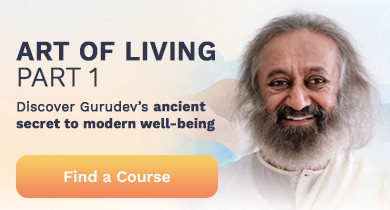As the old saying goes, nobody’s perfect. No one on this earth has ever lived a life free of negativity, fear, or doubt. We’ve all unintentionally hurt someone, whether through selfishness, thoughtlessness, or just plain ignorance. Maybe you’ve retaliated when you, yourself have been hurt, trying to reclaim your autonomy and self-worth by lashing out in defense.

Many of us also carry regrets with the way we have treated ourselves. Perhaps you feel like you’ve made a poor decision in the past that has negatively impacted your life. Maybe you feel like you’ve missed the boat in finding a career that you love, or feel like you’ve wasted your time, energy, and life force on an endeavor or relationship that wasn’t meant to be. You could be angry with yourself for the way you’ve previously neglected your health and wellness.
The past happened. It’s over. The so-called damage has been done, and as much as you might want to, there’s nothing you can do to go back and change your behaviour or decisions. (Unless you’re a theoretical physics genius with working plans for a time machine!)
But here’s the good news -- you are not meant to live a perfect life, or to be a perfect person. If you came into this life without flaws, if you never made mistakes, you’d never learn, grow, change, or develop. The story of your life would have no plot, no magic. Leonard Cohen wrote a gorgeous lyric for his song Anthem -- “There is a crack in everything/That’s how the light gets in.” Every last one of us has our cracks, our flaws, and it is through exploring these flaws that we can let our inner light shine.

As Gurudev Sri Sri Ravi Shankar says, “So many things have happened in the past, some pleasant and some unpleasant, they are all gone. Similarly, what is today will vanish tomorrow. This is your own experience. When you see that everything is changing, everything is vanishing, then you become so solid, so strong, yet so soft and centered.”

However, guilt and shame are powerful forces, and identifying and exploring our flaws and regrets can sometimes become an exercise in self-pity and embarrassment, rather than an exercise in identifying opportunities for growth.
This is why self-forgiveness is so important.
When you are able to move towards forgiving yourself, you can take that self-pity and embarrassment and turn it into positive action.

A simple, useful strategy for self-forgiveness is to speak and think affirmations. Even if you don’t feel that an affirmative statement is quite true just yet, hearing it out loud, or thinking it to yourself, builds new pathways in your mind. Eventually, positive pathways will outnumber the negative ones, and if you put in the effort to really believe what you’re saying, your whole outlook can change. It’s the classic technique of “fake it ‘til you make it.”
Here are 10 affirmations for self-forgiveness to start with.
- I forgive myself for my past decisions and actions.
- I release negative, damaging patterns of thought and behaviour.
- I have the courage to recognize the light within myself.
- I am capable of healing.
- I release shame, anger, guilt, and embarrassment.
- I am a being of love, compassion, and peace.
- I trust myself to build a better future.
- I am learning and growing every day.
- I approach myself with patience and understanding.
- I am a good person.
There are many ways you can incorporate these affirmations into your life. Speak them aloud to your reflection in a mirror. Write affirmations that resonate with you on a sticky note and keep it at your desk at work. Keep a note in your wallet, or a document on your phone, to pull out whenever you feel like you need a boost. You can even use an affirmation as a focus for a meditation session.
Sri Sri reminds us that “Peace is your innate nature; it cannot go away from you. That’s why it means so much to be at peace with oneself. We feel that we want to be at peace with ourselves. You are peace.” Keep this in mind on your self-forgiveness journey, and remind yourself of it often.
Self-forgiveness doesn’t happen overnight. You need to approach it exactly as you would approach forgiving someone else -- with a lack of ego, a compassionate heart, and a patient and persevering mind.

Paige Leigh Reist is a lifestyle writer, writing instructor, and the blogger behind thewholesomehandbook.com





























